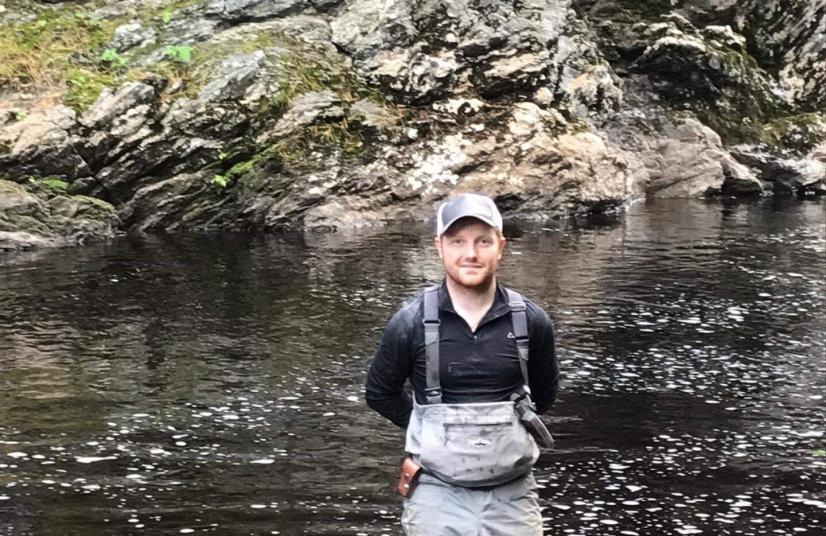A new study led by Antóin O’Sullivan, a PhD student at the University of New Brunswick, works to unravel the complex interactions between landscape features, geomorphology, geology, and vegetation - that create vital cold-water habitat for wild Atlantic salmon. This is especially important as rivers and certain wetlands are forecast to warm with climate change.
O’Sullivan and his team used thermal infrared imagery (TIR) to chart river temperature and remote sensed data to identify multiple landscape features on tributaries of the Miramichi River. Pairing these remote sensing techniques with geological maps and statistical analysis they found upland wetlands in the Cains River increase river temperature. O’Sullivan suggests these upland wetlands have a low thermal resilience to climate change. However, the Cains River and its tributaries are more influenced by groundwater in the lower, and steep valley sections; and are better able to weather warming temperatures from climate change.
In Clearwater Brook, located in the Miramichi Highlands, the CAST team found that bedrock geology was also influencing river temperature. Here, they found an old granite deposit (465 million years) facilitates groundwater discharge to the river; however, as the river flows over a younger granite deposit (387.5 million years) the groundwater and river temperatures increase. O’Sullivan and his team suggest that water in these different granite deposits can control how a river responds to climate change.
“Differences in bedrock and surface geology across New Brunswick underpin differing temperatures for rivers. We need to account for these differences with land use management plans to protect critical cool water habitat for salmon and trout,” explains Antoin O’Sullivan.
“The science tells us that water temperatures are the result of many factors and we need to customize protective buffers for each stream based on its unique characteristics. There is no “one size fits all” protection for these tributaries and the wild Atlantic salmon that depend on the cool pools they provide in summer and warm water in winter. The support of Fisheries and Oceans Canada (DFO) with the thermal mapping work is very appreciated and we hope it can improve how we manage this resource and safeguarding the dwindling wild Atlantic salmon stocks on the Miramichi,” says Dr. R. Allen Curry, Canadian Rivers Institute at the University of New Brunswick.
This CAST science project included the following partners:
- Atlantic Salmon Conservation Foundation (ASCF)
- Natural Sciences and Engineering Research Council of Canada (NSERC)
- NB Department of Environment and Local Government
- NB Department of Economic and Rural Development
- J.D. Irving, Limited
The CAST science team:
Antóin O'Sullivan and Dr. Allen Curry of the Canadian Rivers Institute, Faculty of Forestry and Environmental Management and Biology Department, University of New Brunswick, Fredericton
Dr. Kevin Devito, Department of Biological Sciences, University of Alberta, Edmonton
ABOUT CAST:
CAST (Collaboration for Atlantic Salmon Tomorrow) is a partnership of scientists, environmental groups and industry participants focused on saving wild Atlantic salmon before it is too late.

Antóin O’Sullivan, the Canadian Rivers Institute, Faculty of Forestry and Environmental Management and Biology Department, University of New Brunswick, Fredericton (photo credit: Daniel Hanscom)
CONTACT: ANTOIN O’Sullivan - 506-238-4587 - aosulliv@unb.ca

Thermal mapping camera funded by DFO and attached to a helicopter donated by JDI to map water temperatures on the Miramichi River

Cains River temperature map in summer showing cooler water (blue) entering from deep valley streams




